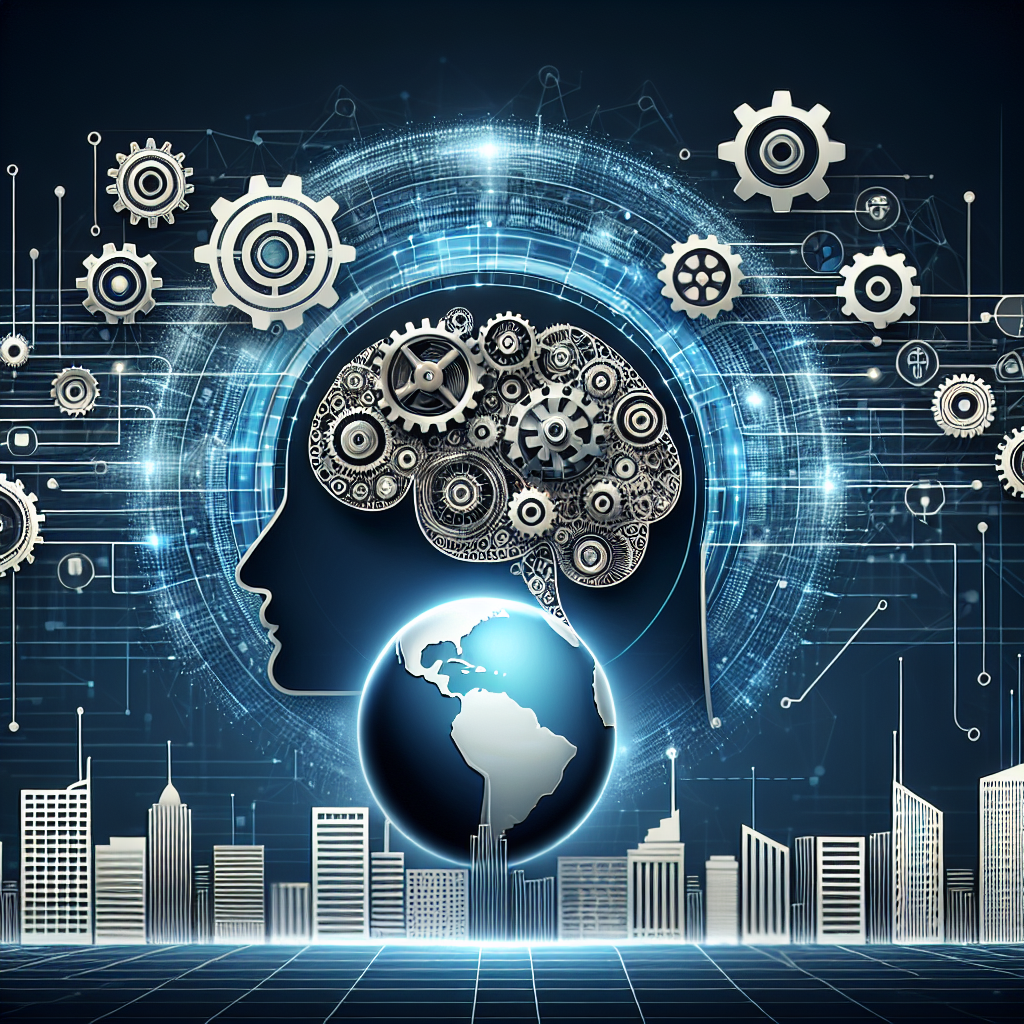Artificial General Intelligence (AGI) is a term that has been gaining more and more attention in recent years. AGI refers to a type of artificial intelligence that possesses the ability to understand, learn, and apply knowledge in a way that is comparable to human intelligence. Unlike narrow AI, which is designed to perform specific tasks or solve particular problems, AGI has the potential to think and reason across a wide range of domains and tasks.
The development of AGI has the potential to be a game-changer in the world of technology and business. With the ability to learn and adapt to new situations, AGI could revolutionize a wide range of industries, from healthcare and finance to transportation and entertainment. In this article, we will explore the potential impact of AGI on the tech and business world, as well as some of the challenges and opportunities that come with its development.
The Potential Impact of AGI on Tech and Business
1. Automation: One of the most significant impacts of AGI on the business world is automation. AGI has the potential to automate a wide range of tasks and processes that are currently done by humans. This could lead to increased efficiency, reduced costs, and improved productivity for businesses across various industries.
2. Decision-making: AGI could also revolutionize decision-making processes in businesses. With the ability to analyze vast amounts of data and make predictions based on that data, AGI could help businesses make more informed decisions in real-time. This could lead to better outcomes and a competitive advantage for companies that adopt AGI technology.
3. Innovation: AGI could also drive innovation in the tech and business world. With the ability to learn and adapt to new situations, AGI could help businesses develop new products and services that meet the changing needs of consumers. This could lead to new revenue streams and growth opportunities for businesses that leverage AGI technology.
4. Customer experience: AGI could also improve the customer experience for businesses. By analyzing customer data and behavior, AGI could help businesses personalize their products and services to better meet the needs and preferences of individual customers. This could lead to increased customer satisfaction and loyalty for businesses that use AGI technology.
Challenges and Opportunities of AGI
While the potential benefits of AGI are vast, there are also significant challenges and risks associated with its development. Some of the key challenges and opportunities of AGI include:
1. Ethical concerns: One of the biggest challenges of AGI is the ethical implications of creating machines that possess human-like intelligence. There are concerns about the potential misuse of AGI technology, as well as the impact it could have on society, privacy, and security.
2. Bias and fairness: Another challenge of AGI is the potential for bias and unfairness in decision-making. AGI systems are only as good as the data they are trained on, and if that data is biased or incomplete, it could lead to unfair outcomes for certain groups of people.
3. Job displacement: AGI has the potential to automate a wide range of tasks and processes that are currently done by humans. While this could lead to increased efficiency and productivity, it could also lead to job displacement for many workers. Businesses will need to consider how to retrain and reskill their workforce to adapt to the changing nature of work.
4. Regulation: Another challenge of AGI is the need for regulation and oversight to ensure that the technology is used responsibly and ethically. Governments and businesses will need to work together to develop appropriate regulations and standards for the development and deployment of AGI technology.
Despite these challenges, there are also significant opportunities for businesses that adopt AGI technology. By leveraging the power of AGI, businesses can gain a competitive advantage, drive innovation, and improve efficiency and productivity. AGI has the potential to revolutionize the way businesses operate and create new opportunities for growth and success.
FAQs
Q: What is the difference between AGI and narrow AI?
A: AGI refers to artificial intelligence that possesses human-like intelligence and the ability to learn and adapt to new situations, while narrow AI is designed to perform specific tasks or solve particular problems.
Q: How is AGI being used in businesses today?
A: While AGI is still in the early stages of development, businesses are starting to explore how it can be used to automate tasks, improve decision-making processes, and enhance the customer experience.
Q: What are some of the ethical concerns associated with AGI?
A: Some of the ethical concerns associated with AGI include the potential misuse of the technology, bias and unfairness in decision-making, job displacement, and the need for regulation and oversight.
Q: How can businesses prepare for the future of AGI?
A: Businesses can prepare for the future of AGI by staying informed about the latest developments in the field, investing in research and development, and exploring how AGI can be integrated into their operations to drive innovation and growth.
In conclusion, AGI has the potential to be a game-changer in the world of technology and business. With the ability to think and reason like humans, AGI could revolutionize a wide range of industries, from healthcare and finance to transportation and entertainment. While there are significant challenges and risks associated with its development, there are also significant opportunities for businesses that adopt AGI technology. By leveraging the power of AGI, businesses can gain a competitive advantage, drive innovation, and improve efficiency and productivity in the rapidly changing world of tech and business.

